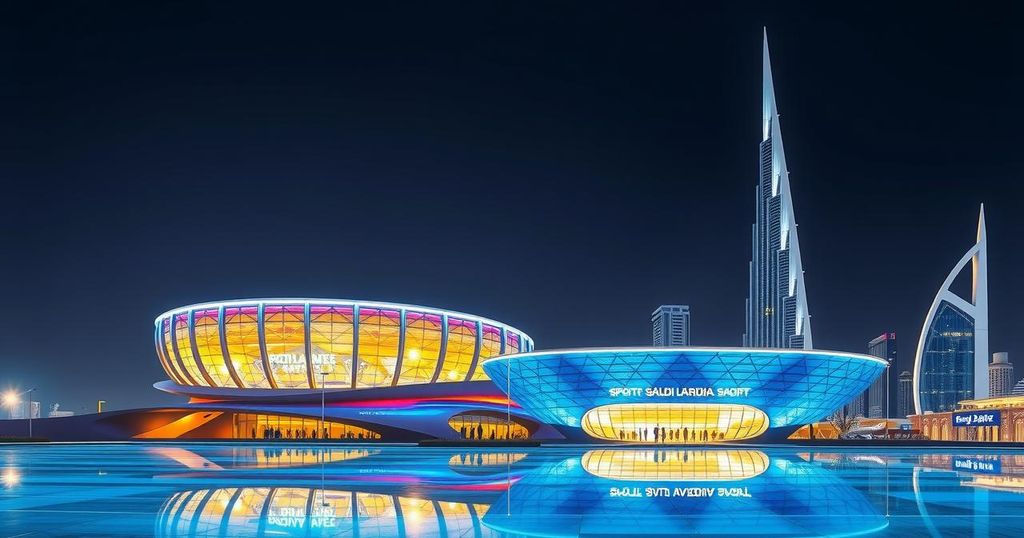Saudi Arabia has emerged as a dominant player in global sports, with the 2034 FIFA World Cup announced for the kingdom amid ongoing human rights concerns. This evolution follows Qatar’s World Cup experience and underscores a shift towards accepting Middle Eastern nations as hosts, despite controversy. The kingdom’s investments enhance its sports profile while raising significant ethical questions about human rights.
In recent years, Saudi Arabia has emerged as a dominant force in global sports, with the FIFA World Cup scheduled to take place there in 2034. This transition follows Qatar’s controversial hosting of the World Cup in 2022, which was marred by corruption and human rights concerns. The shift towards Saudi Arabia did not spark outrage but rather acceptance among observers, indicating a normalization of such events in the region.
Following Qatar’s 2010 announcement as host, a series of scandals emerged in the world of football, leading to the resignation of FIFA’s president, Sepp Blatter. His successor, Gianni Infantino, facilitated future World Cup host selections through affirmation rather than votes, exhibiting a stark shift in FIFA’s operational integrity. The process was described as uninspired, fostering doubts among football enthusiasts regarding transparency.
Saudi Arabia’s involvement in sports aligns with its broader efforts for modernization and economic sustainability, particularly in anticipation of diminishing oil reserves. The country has launched mega-projects like Neom, which showcases its ambitions by investing in infrastructure and sports events. This interest in sports is relatively new, having begun primarily around 2018 with organizations like WWE and significant tennis and boxing events.
The influx of high-profile sporting events accelerated in recent years, highlighted by the arrival of the Saudi Arabian Grand Prix in 2021 and the acquisition of Newcastle United by Saudi Arabia’s Public Investment Fund. With significant investments, Saudi Arabia has attracted renowned athletes such as Cristiano Ronaldo and Neymar to boost domestic leagues and enhance the country’s reputation.
Critics argue that this strategy represents “sportswashing,” where sports events are used to obscure ongoing human rights abuses within the nation. Montague contests this view, suggesting that the focus is on wielding power through financial means rather than simply improving a tarnished reputation. The Saudi influence in UK football, particularly in Newcastle, illustrates the potential for significant investment impacting local development as well as sport.
Montague’s on-the-ground reporting reveals the complexities of sports culture in Saudi Arabia, highlighting a substantial investment of $38 billion into the esports sector. While the events reflect Saudi Arabia’s growing attraction to international sports, the underlying political repression remains a consistent concern, with limited progress in civil rights despite superficial cultural shifts.
In summary, Saudi Arabia has positioned itself as a new sporting powerhouse through aggressive investments and the hosting of high-profile events like the FIFA World Cup. Despite allegations of sportswashing and persistent human rights issues, the kingdom’s sports culture is flourishing, showcasing a blend of modernity and traditional repression. This duality raises questions about the implications of foreign investment and the balance of sport and ethics.
Original Source: www.thetimes.com






